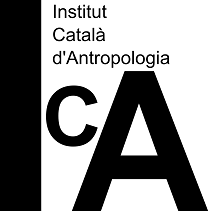Towards a transurban future for a livable utopia
DOI:
https://doi.org/10.56247/qua.406Keywords:
transurban, utopia, livable space, urban anthropology, Henri LefebvreAbstract
Four current problems to be faced are established: the collapse of the imagination; the dominance of urban ideology; incompatibility between spatial utopianisms and emancipatory social processes; and the persistence of studying the city as a whole. This makes it possible to search for a theoretical corpus that has as its central theme Henri Lefebvre's thought, to trace the path of a utopia of the livable that provides an opening to a (trans)urban future located in the insterstices of the city of tomorrow. The descriptive- qualitative methodological design facilitates the epistemological review and dialectical analysis of Lefebvre’s work and other authors in the Lefebvrian tradition, under the approach of an anthropology of social space and critical imagination. Thus, anthropology, architecture, and urban planning meet in the interstices of the city and the promise of an uncertain urban world. These conflicting intermediates configure the transurban differential space, a place of unknown limits, of victory and reappropriation of the anthropo and an arena of architectural imagination. The transurban is part of the utopian project to change the lived as a space of struggle for the livable, for the realization of the possible- impossible, of a different urban society.
Downloads
Global Statistics ℹ️
|
855
Views
|
518
Downloads
|
|
1373
Total
|
|
References
Careri, F. (2020). Francesco Careri. Autodiálogo sobre la producción de utopías concretas.
Dearq, 28(2020), 8-17. DOI: https://doi.org/10.18389/dearq28.2020.02 DOI: https://doi.org/10.18389/dearq28.2020.02
Carrión, F., Corti, M., Ramírez Kuri, P., Abramo, P. y Cepeda, P. (Eds.). (2022). El futuro de las ciudades. Flacso.
Coleman, N. (2013). Utopian Prospect of Henri Lefebvre. Space and Culture, 16(3), 349-363. https://doi.org/10.1177/1206331213487152 DOI: https://doi.org/10.1177/1206331213487152
Delgado, M. (1999). El animal público. Anagrama.
Delgado, M. (2007). Tener lugar. El espacio social como patrimonio. En M. Luna y M. Lucas (Eds.). Arquitectura tradicional y entorno construído (pp. 9-15). Trenti.
Delgado, M. (2015). Lo urbano como fogón de brujas. En G. Aricó, J. Mansilla y M. Stanchieri (Coord.). Mierda de ciudad. Una rearticulación crítica del urbanismo neoliberal desde las ciencias sociales (pp. 5-10). Pol-len Edicions.
Delgado, M. (2017). Los movimientos sociales ahora no están volvemos a la catástrofe de la Transición / Entrevistado por I. Franch. Revista Carrer, (145/146), 13.
Espinosa Hernández, R. (2022). Moments et formants de la production de l’espace social. La Pensée, 410, 82-93. https://doi.org/10.3917/lp.410.0082 DOI: https://doi.org/10.3917/lp.410.0082
Espinosa, H. (2023). Lefebvre y el giro espacial en antropología urbana: Notas para una epistemología del espacio vivido. Vibrant: Virtual Brazilian Anthropology, 19. DOI: https://doi.org/10.1590/1809-43412022v19e601
Garcés, M. (2022). Imaginación crítica. Artnodes, (29), 1-8. https://doi.org/10.7238/artnodes.v0i29.393040 DOI: https://doi.org/10.7238/artnodes.v0i29.393040
Harvey, D. (2008). El neoliberalismo como destrucción creativa. Apuntes del CENES, 27(45). https://www.redalyc.org/pdf/4795/479548752002.pdf
Harvey, D. (2012) [2000]. Espacios de esperanza. Akal.
Jiménez-Pacheco, P. (2017a). El secreto del Estado: su espacio (Traducción inédita comentada: “El espacio y el Estado”). Plataforma digital Marxismo Crítico. https://marxismocritico.com/2017/09/08/el-espacio-y-el-estado
Jiménez-Pacheco, P. (2017b). El goce [la jouissance] en el espacio. Fundamentos lefebvrianos para una arquitectura del goce. En Actas Congreso Iberoamericano redfundamentos, 1, 807-817. http://ojs.redfundamentos.com/index.php/actas/article/view/285
Jiménez-Pacheco, P. (2018a). After Planning, the Production of Radical Social Space in Barcelona: Real-Estate Financial Circuit and (De Facto) Right to the City. Urban Planning, 3(3), 83-104. http://dx.doi.org/10.17645/up.v3i3.1360 DOI: https://doi.org/10.17645/up.v3i3.1360
Jiménez-Pacheco, P. (2018b). La rebelión del espacio vivido. Teoría social de la urbanización capitalista (Tesis doctoral inédita; dir. Fernando Álvarez). ETSAB-Universitat Politècnica de Catalunya.
Jiménez-Pacheco, P. (2023). Neoliberal Urbicide in Barcelona. The Case of Ciutat Vella. En F. Carrión Mena, P. Cepeda Pico (Eds) Urbicide. The Urban Book Series. Springer, Cham. https://doi.org/10.1007/978-3-031-25304-1_43 DOI: https://doi.org/10.1007/978-3-031-25304-1_43
Lefebvre, H. (1961). Utopie expérimentale: Pour un nouvel urbanisme. Revue Française de Sociologie, 2(3), 191–198. https://doi.org/10.2307/3319524 DOI: https://doi.org/10.2307/3319524
Lefebvre, H. (1968). Humanismo y Urbanismo. Architecture, Forme, Fonction, 14, 22-26.
Lefebvre, H. (1972). Contra los tecnócratas. Hacia el Cibernantropo. Granica.
Lefebvre, H. (1973). Más allá del estructuralismo. Pléyade.
Lefebvre, H. (1976). Tiempos equívocos. Kairós.
Lefebvre, H. (1978). El espacio y el Estado. L’espace et l’État (Capítulo V). En Tomo IV, De l’État, Les contradictions de l’État modern (pp. 259-324). Union générale d’éditions.
Lefevbre, H. (1986). Le retour de la dialectique. 12 mots clefs pour le monde moderne. Messidor-Éditions Sociales.
Lefebvre, H. (2013). La producción del espacio. Capitán Swing.
Lefebvre, H. (2014). Critique of Everyday Life. Volume II: Foundations for a Sociology of the
Everyday. Verso e-book.
Lefebvre, H. (2016) [1965]. Metaphilosophy. Verso Books.
Lefebvre, H. (2018). Hacia una arquitectura del placer. Centro de Investigaciones Sociológicas.
Martínez, I. (2018). Henri Lefebvre, en busca del espacio del placer. En H. Lefebvre, Hacia una arquitectura del placer (13-58). Centro de Investigaciones Sociológicas
Tafuri, M. (1979). Architecture and utopia: design and capitalist development. Massachusetts/Londres: MIT press.
Stanek, L. (2014). A Manuscript Found in Saragossa. Toward an Architecture. En Henri Lefebvre. Toward an Architecture of Enjoyment (pp. XI-LXI). University of Minnesota Press.
Downloads
Published
How to Cite
Issue
Section
License
Distributed under the terms of the Creative Commons Attribution 4.0 International Use and Distribution License (CC BY-NC-SA 4.0)




